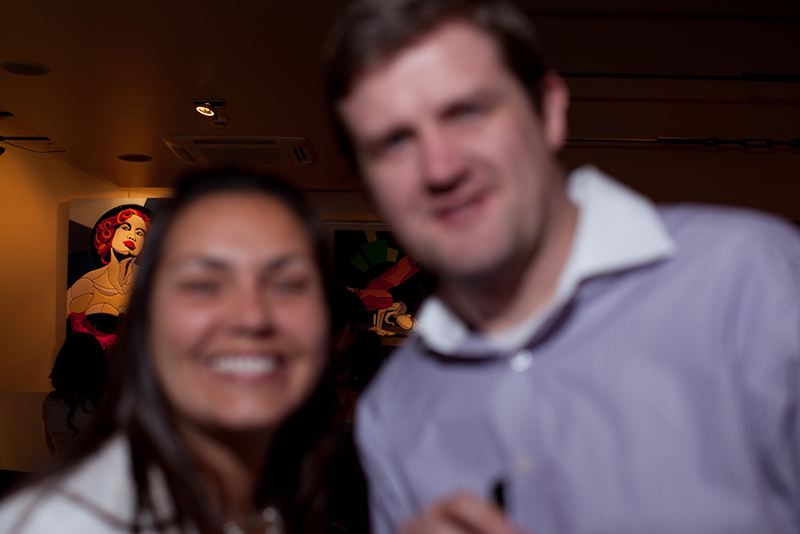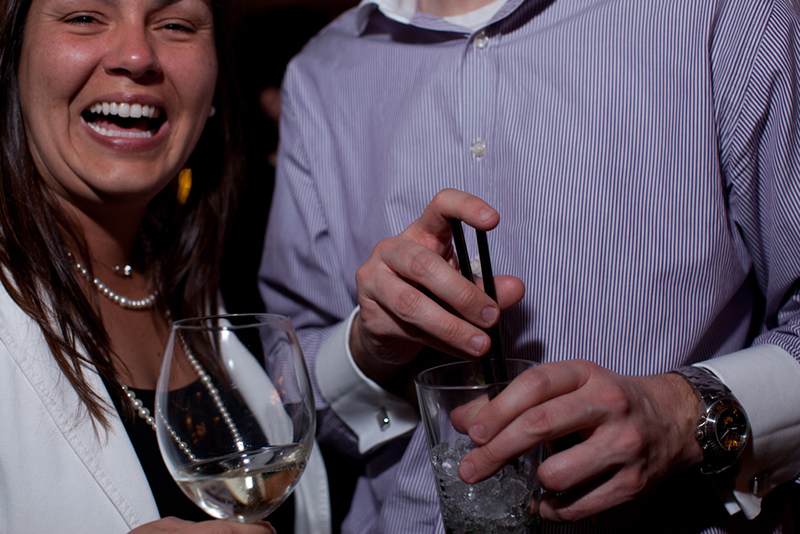Elements and Components
Elements and Components
In part of your post, if I'm reading correctly, you say that you believe that the quality of the equipment matters little. I think it does matter, but there are other factors that can compensate or undo the effects of good equipment.
Here's a humorous example of how the photographer can undue the value of good equipment, which supports your argument. I used to have a Canon 5D Mark II digital SLR camera, with a Canon EF 50mm f/1.2 L lens. If you don't know, these are excellent. A friend at a party wanted to try the camera. I put the camera on auto-focus and explained to her what to do, including how auto-focus works. She took a shot of two people, shown below:
As you can see, the focus was locked on the wall far behind them. I explained to her again about the red squares that appear in the viewfinder for focusing. She tried again and took this second shot below:
She got the focusing right, but didn't quite get the composition right. I explained about composition then. She took several more pictures and all of them had something major wrong with them. She and I laughed after each photo. She knew she wasn't a photographer and didn't care. After awhile she gave me the camera back. I'm not picking on her. This is just a funny, extreme example.
I could post many photos that I've taken using a mobile phone. Almost all of them are terrible. But that friend of mine, who couldn't wield a Canon 5DII, can take pictures just fine with her iPhone, much better than me. The photographer has to know and be comfortable with her equipment. Nevertheless, there is definitely a quality difference when the photographer is equally skilled in the equipment of various quality levels. A person who knows how to take photos with an iPhone and a Canon 5DII will take better pictures with the 5DII.
For me, this is the order of what components matter: subject, photographer, lens, camera, processing. Subject can include things such as a model and lighting. If there's nothing interesting to photograph, the photo won't be interesting. Of course, there's beauty everywhere, always. If the photographer doesn't know where to point the camera, doesn't know when to take the picture, doesn't now how to use the equipment, he'll take a bad photo. If the lens is of poor quality, scratched and dirty, the results will be effected. If the camera is limited in features, the sensor is minimal and small, or the film is not high quality, the photo will not be as good. If the image is processed badly, be it film developing or in a program like Adobe Lightroom, the final image can be ruined.
Following my order of components and assumptions, if there is a good shot wherever and whenever, a good photographer can always take a good photo, a better photo with a better subject. The components that follow in my chain can make for a better final product. Looking at my silly example above, a high quality camera, lens, and processing won't compensate much for a poor photographer.
The reality of the subject, of a scene is enormous. The narrowing of the vision by the photographer reduces the scene into a photo to preserve and show others. The components that follow in the chain may narrow further what the photographer saw. The less it narrows that vision of reality, the better generally. The less it corrupts it, the more true it will be to what the photographer first saw. To the extent that the lens has greater clarity than the photographer's eye and the amount that the sensor is more sensitive, they can even improve that vision. And with a program like Lightroom, the vision can be enhanced and artistically altered. But it all starts with the subject and is dependent upon the photographer. This is my perspective and appreciation of the elements and components involved.



